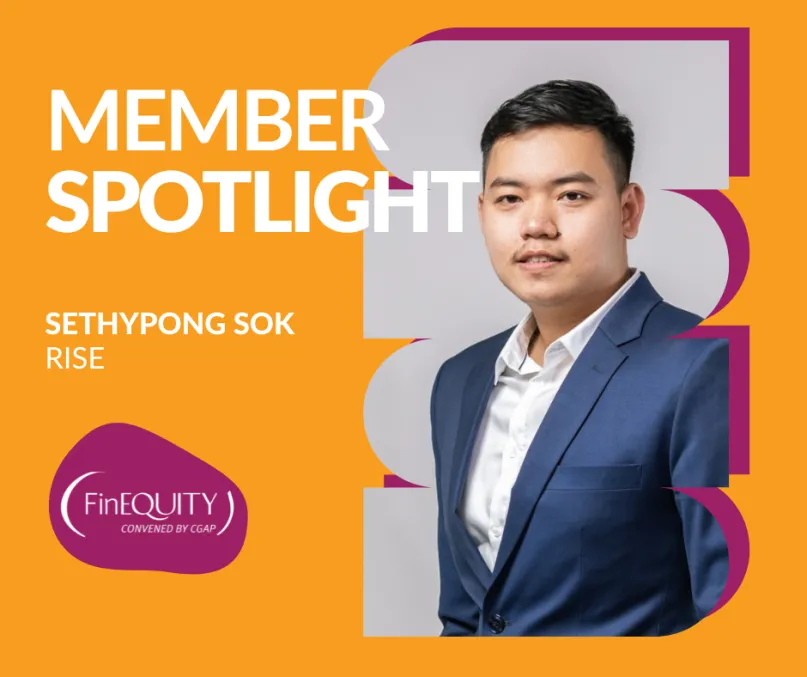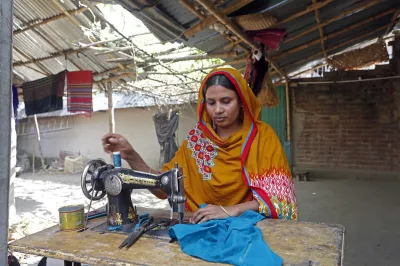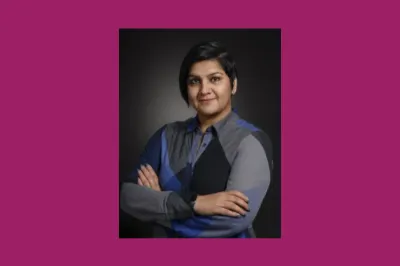Member Spotlight: Sethypong Sok

Sethypong Sok, RISE Country Representative Cambodia, sat down with us to share his inspiration to work on financial inclusion for women garment workers in Cambodia, RISE's success with empowering women's decision making on family spending, and much more.
FinEquity: Can you tell us a little bit about yourself? A fun fact? Something that might surprise most people? Your superpower?
Sok: My name is Sethypong Sok. I was born and raised in Siem Reap, Cambodia. Growing up in a small town taught me the values of humility and patience. From a young age, I developed a curiosity for exploring and understanding the world around me, which eventually led me to pursue a degree in International Relations. During my time at university, I discovered a deep passion for helping others and championing equality. I firmly believe that everyone should have the opportunity to reach their full potential, regardless of their background or gender identity. This faith inspired me to get involved in NGO-related work, starting with an internship as an English teacher in a rural village and progressing to roles as an assistant program, and then program, lead.
Currently, I hold the position of RISE Cambodia Representative. RISE is an initiative that aims to support collaborative industry action on a large scale to advance gender equality in global garment, footwear, and home textiles supply chains. In this role, I work towards creating a more inclusive and fair working environment for all individuals, especially women workers, within the garment industry.
In addition to my humanitarian work, I find enjoyment in watching football, although I don't actively participate in playing this sport myself. One of my personal strengths is my ability to influence and shape my environment. I possess strong persuasive skills and take pleasure in leading and motivating others towards positive change.
FinEquity: What originally drew you to the women’s financial inclusion and economic empowerment sector? What has kept you working in this space?
Sok: I was originally drawn to the women's financial inclusion and economic empowerment sector due to a combination of personal experiences and a strong commitment to social justice. Growing up in a developing country, I had the opportunity to witness firsthand the obstacles and inequalities that women face when it comes to accessing financial services and opportunities for economic progress. It became clear to me that these barriers continued cycles of poverty and limited the potential for women to thrive and succeed. During my university studies, my understanding of the global gender disparities in access to finance and economic opportunities deepened. This knowledge further fueled my passion to make a tangible difference in this area and work towards creating a more equitable society.
What has kept me engaged and motivated in this field is the profound satisfaction I gain from knowing that my efforts can contribute to meaningful and lasting change. By working towards women's financial inclusion and economic empowerment, particularly in the garment sector, I am not only empowering women workers but also fostering broader social and economic development. When women have equal access to financial resources and opportunities, they become catalysts for change within their households and communities, ultimately driving inclusive economic growth. Moreover, witnessing the progress that has been made in this field over the years serves as a constant source of inspiration for me.
FinEquity: RISE is currently working on digital wages and financial health in Cambodia. Can you tell us a bit more about this work? What impact have you seen this have on women’s financial inclusion and economic empowerment in Cambodia?
Sok: At RISE, we focus on digital wages and financial health in Cambodia. Our work involves around two main areas: digital wages and financial health. Digital wages involve providing support on transitioning from cash-based payments to digital payments for workers in the garment industry, many of whom are women. This shift enables them to safely collect their wages and build up savings. In parallel, we also prioritize promoting financial literacy through collaborations with local partners. We offer training, workshops, awareness-raising activities and resources that equip women with the knowledge and skills needed to make informed financial decisions. Topics covered include budgeting, saving, debt management, and understanding financial products and services. The impact of our work has been significant and transformative.
Through the implementation of digital wage programs, we have observed increased transparency and efficiency in payment processes, reducing the risk of wage theft or delays. This contributes to greater financial stability for women workers, allowing them to better plan their expenses, save money, and invest in their future. Additionally, it opens up opportunities for them to engage with formal financial institutions and access a wider range of financial services. In fact, we have seen a 56 percent increase in women in Cambodia making mobile money transactions.
Our financial literacy programs have also had a positive impact on women's financial empowerment. By equipping them with the necessary skills and knowledge, women have become more confident in managing their finances, making informed decisions, and setting financial goals for themselves and their families. As a result, there has been a 24 percent increase in women in Cambodia reporting that they actively participate in decision making regarding family spending. This empowerment extends beyond the individual level, as financially literate women often share their knowledge and influence their communities, creating a ripple effect of positive change.
Overall, our work on digital wages and financial health has played a crucial role in enhancing women's financial inclusion and economic empowerment in Cambodia. Through the use of technology and by providing the necessary resources and support, we are breaking down barriers and creating opportunities for women to thrive in the formal financial system. This, in turn, contributes to their overall well-being and socioeconomic advancement.
FinEquity: What are your top priorities for the remainder of 2023 (and beyond) for your work?
Sok: In 2023, RISE is going through an exciting transition as we establish ourselves as an organization dedicated to advancing gender equality in the industry.
Our primary focus in Cambodia this year is on our digital wages and financial health programs. Our top priority is to expand and scale these programs to reach a larger number of women workers in the garment industry. To achieve this, we plan to form partnerships with more factories, local partners, government agencies, and financial service providers. Through collaboration with these stakeholders, we aim to extend the benefits of digital payments and financial education to a greater number of workers, with a special emphasis on empowering women workers.
At RISE, we place high importance on innovation and staying ahead in emerging tools and resources. We will continue exploring new solutions and conducting research to implement best practices in our digital wage programs and financial literacy initiatives. This may involve utilizing data analytics to gain valuable insights into the impact of our work and make informed decisions based on data. Advocacy and policy engagement are crucial aspects of our work. We recognize the need to advocate and promote gender-responsive approaches in the garment sector. Engaging with policymakers, employers, and worker representatives is essential to bring about systemic changes that support women's financial inclusion and economic empowerment. Through expansion, partnerships, innovation, and advocacy, we aim to make a significant and lasting impact on the lives of women workers in the garment industry.
FinEquity: What can FinEquity members connect with you about?
Sok: With sharing a common objective, I believe we can have meaningful discussions about various aspects of our work and expertise in women's financial inclusion and economic empowerment. We can explore topics like RISE's successful transition from cash-based to digital payments for women workers in the garment industry. This includes discussing the challenges faced during this transition, the strategies that were implemented, and the impact it had on financial inclusion and empowerment.
Furthermore, members can engage with me to learn about RISE's approaches and best practices in promoting financial literacy and improving the financial well-being of women workers. We can discuss the content and delivery methods of financial health programs, their effectiveness, and how scalable they are. FinEquity members will gain valuable insights from our experiences, learn from RISE's successful initiatives, and exchange ideas and experiences related to women's financial inclusion and economic empowerment. The platform provides an excellent opportunity for collaboration, knowledge sharing, and collective learning. Together, we can advance the field of financial inclusion for women workers.


